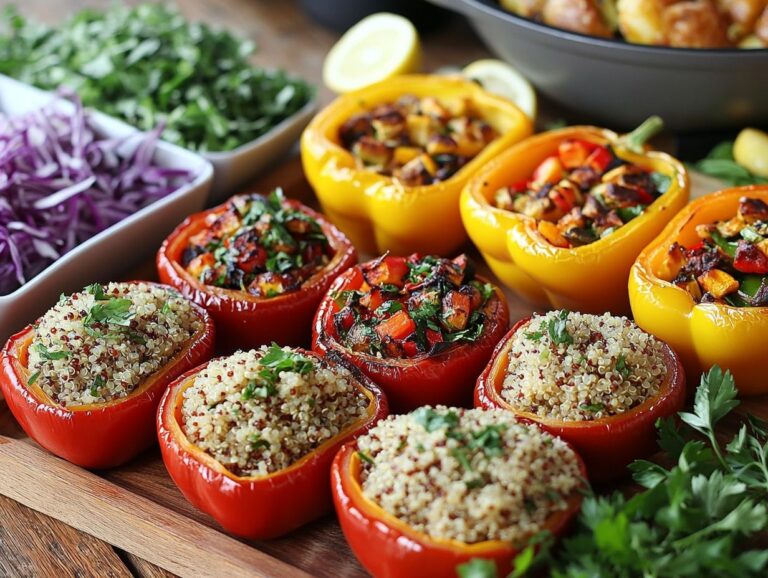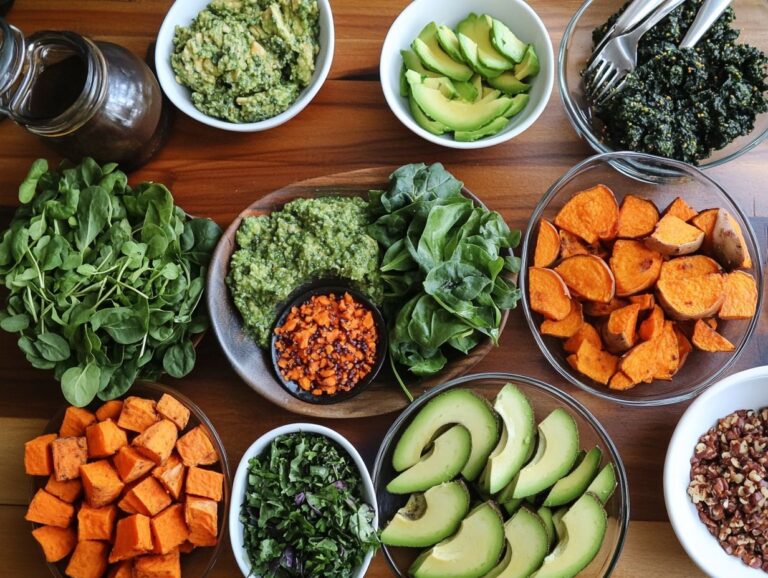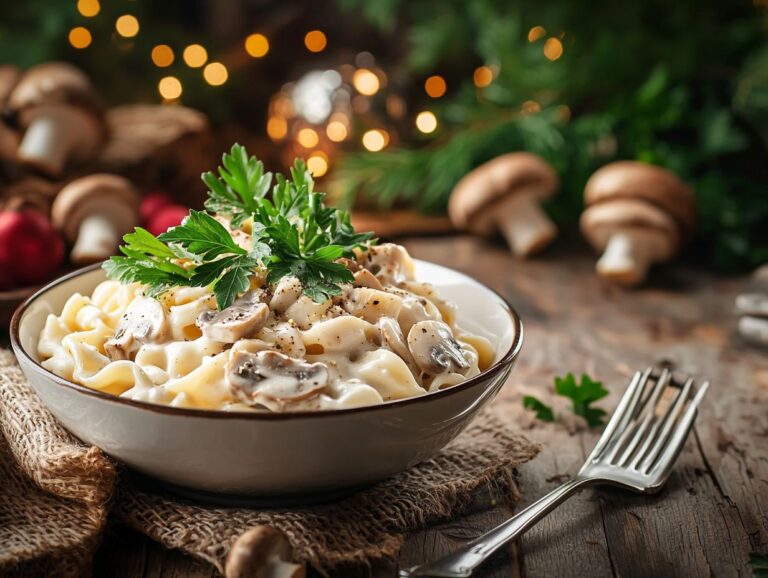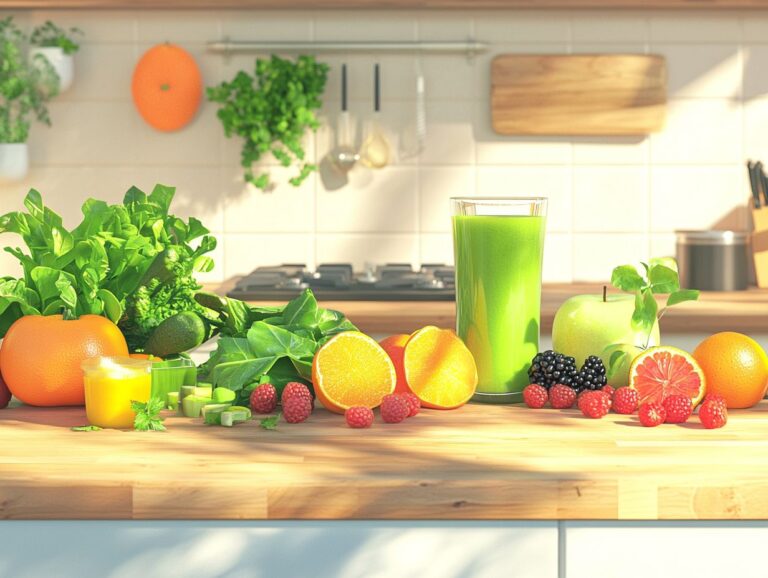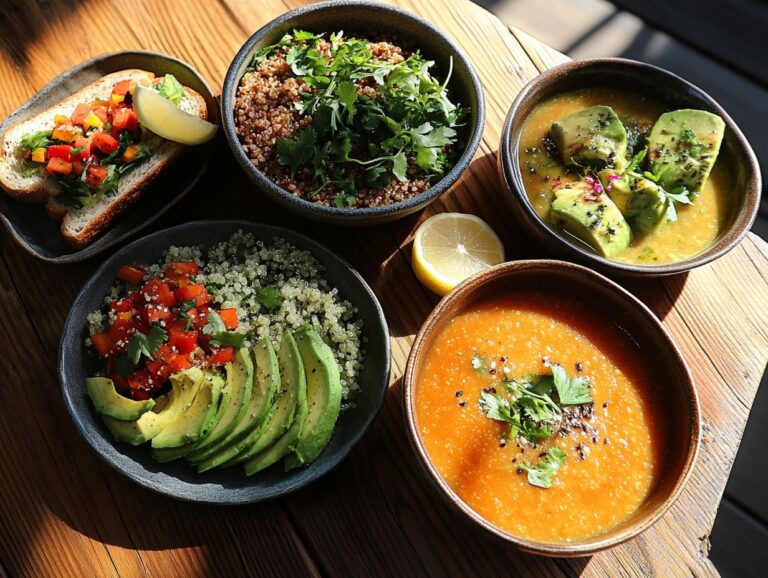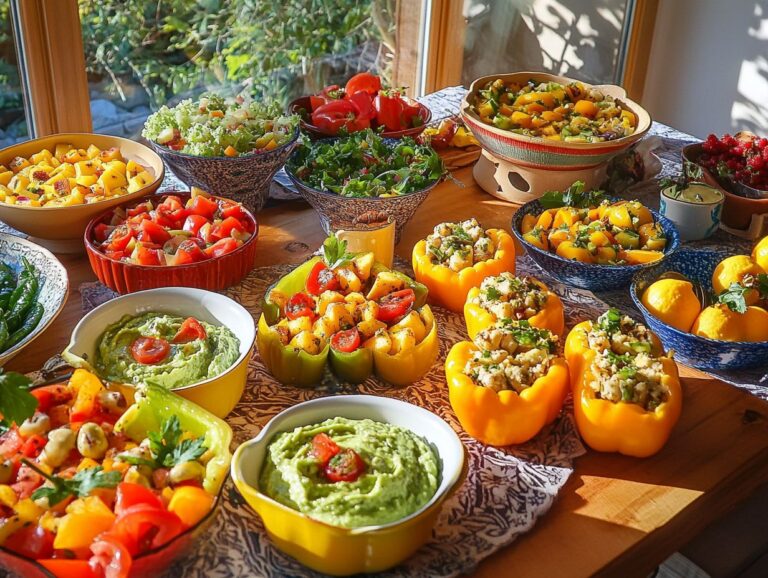Irritable Bowel Syndrome (IBS) is one of the most complex conditions among digestive disorders, making it challenging to manage and often necessitating careful attention to diet. For some individuals with IBS, adopting a vegan diet can help alleviate symptoms. This article explores the connection between IBS and diet, highlighting the potential benefits of a plant-based diet in managing IBS symptoms. It discusses essential nutrients for individuals with IBS, provides recipes for IBS-friendly vegan meals, and offers cooking tips, such as steaming and roasting, to create a more digestible diet. Additionally, the article includes strategies to help modify your cooking habits in ways that support digestive health, such as incorporating probiotics and prebiotics.
Understanding IBS and Diet
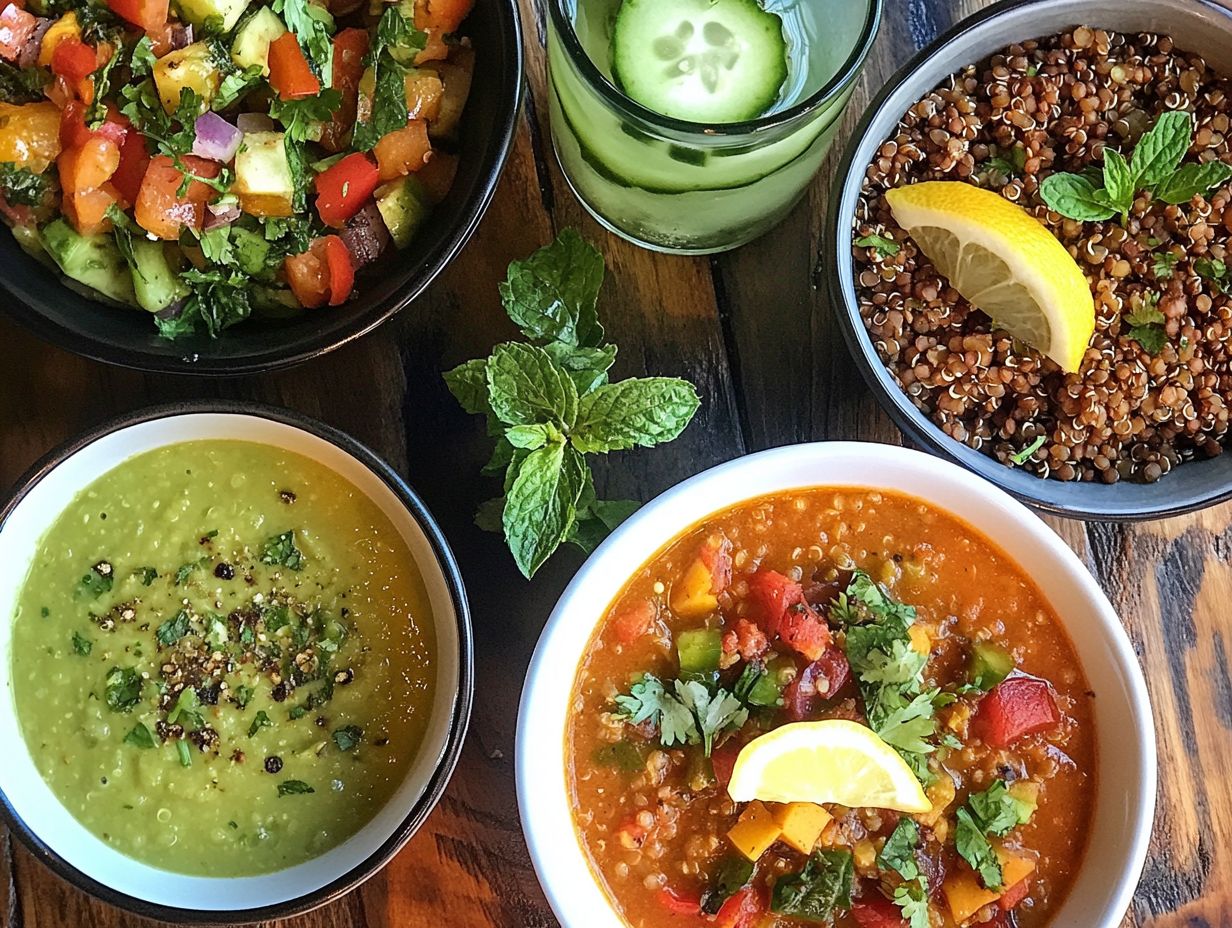
Irritable Bowel Syndrome (IBS) is a common gastrointestinal disorder that primarily affects the large intestine. It significantly impacts an individual’s diet, as symptoms such as abdominal pain, bloating, and altered bowel habits often drive individuals to adopt specific diets in search of reduced discomfort and improved gut health. Understanding dietary fiber and its role in promoting easy digestion is crucial for managing these symptoms.
The relationship between IBS and diet is inseparable, as the foods we consume can either alleviate or worsen symptoms. Adopting a plant-based diet that emphasizes nutrient-dense, fiber-rich foods, such as whole grains, lentils, and vegetables, may facilitate easier digestion and enhance overall wellness.
What is IBS and How Does Diet Affect It?
Irritable Bowel Syndrome (IBS) is a gastrointestinal condition characterized by symptoms such as abdominal pain, bloating, and irregular bowel movements. These symptoms can be aggravated by dietary factors, such as the consumption of gluten-containing foods or those high in FODMAPs. Various gastrointestinal disorders are collectively referred to as IBS, and they can lead to uncomfortable and debilitating symptoms for patients.
Common symptoms associated with IBS include cramping, diarrhea, and constipation, which may worsen due to certain foods. Therefore, it is important for patients with IBS to identify their specific food triggers.
Diet plays a crucial role in the management of IBS and is one of the few interventions that can significantly improve symptoms. One of the more effective dietary strategies for managing IBS is the low FODMAP diet, which restricts fermentable oligosaccharides, disaccharides, monosaccharides, and polyols. Following a low FODMAP diet is highly beneficial for IBS patients, as it can lead to fewer symptoms and improved digestive health.
In addition, incorporating food items that are high in fiber and easy to digest while avoiding processed foods are important dietary interventions that can contribute to the effective management of IBS and help patients notice a significant improvement in their symptoms.
Benefits of a Vegan Diet for IBS
The benefits of adopting a vegan diet for individuals with Irritable Bowel Syndrome (IBS) include the opportunity to follow a well-balanced dietary strategy that emphasizes gut-healthy, nutrient-dense, plant-based foods known to reduce inflammation and alleviate gastrointestinal symptoms.
A carefully planned vegan diet can help IBS patients obtain adequate amounts of dietary fiber, vitamins, and healthy fats, such as those from avocados and almonds. When combined with sufficient caloric intake, a vegan diet is rich in fruits, vegetables, whole grains, legumes, and nuts, which may provide the necessary dietary modifications to relieve digestive symptoms, satisfy appetite, and contribute to digestive wellness.
These dietary adjustments can be particularly beneficial for IBS patients with food sensitivities.
Why a Vegan Diet May Help with IBS Symptoms
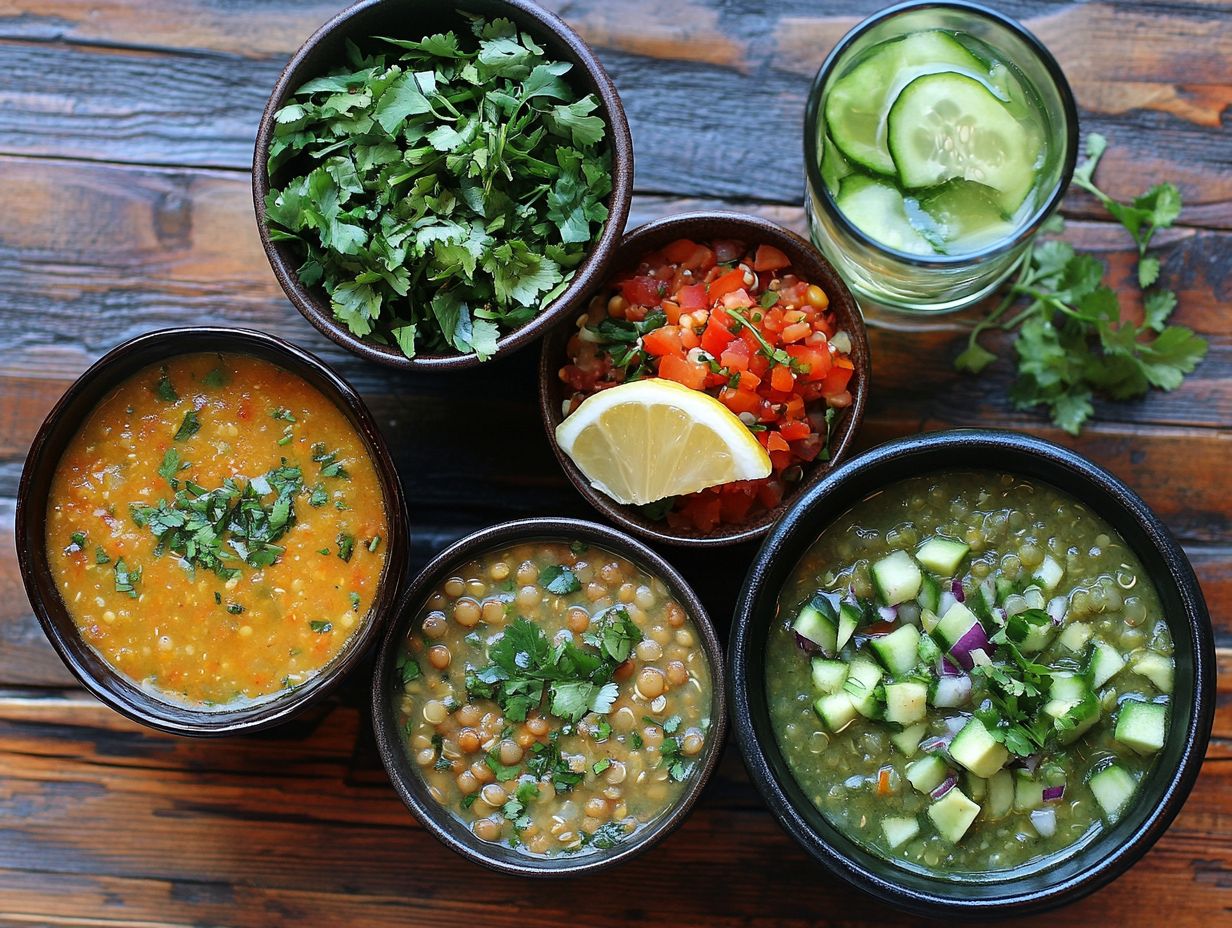
A vegan diet can be beneficial for individuals with IBS by offering high-fiber, low-FODMAP foods that are easy to digest and do not irritate sensitive systems.
This dietary approach emphasizes certain plant-based options, such as oats, bananas, carrots, and sweet potatoes, which are rich in soluble fiber. Soluble fiber aids in stabilizing bowel movements and promoting gut health without exacerbating symptoms.
Along with fiber, many plant-based foods are nutrient-dense, further supporting digestion and making them well-suited for those suffering from IBS.
A vegan diet can easily accommodate various food sensitivities by avoiding common irritants found in animal products, while also providing a diverse array of flavors that support overall digestive health. Incorporating herbs like ginger and turmeric can also aid in digestive wellness due to their anti-inflammatory properties.
Key Nutrients for IBS-Friendly Vegan Meals
Incorporating essential nutrients into IBS-friendly vegan meals is crucial for supporting digestive health and overall well-being. By understanding which nutrients benefit gut health, individuals can create satisfying and nourishing meals tailored to their dietary needs.
It is important to focus on nutrient-dense foods that offer ample fiber, healthy fats, and digestive enzymes, as these components play a key role in managing IBS symptoms. Furthermore, including probiotics, such as coconut yogurt, and fermented foods can enhance gut flora and facilitate digestion, resulting in a balanced approach to meal preparation.
Essential Nutrients for Digestive Health
A plant-based diet rich in dietary fiber, probiotics, healthy fats, and other essential nutrients can significantly support individuals with irritable bowel syndrome (IBS). These nutrients enhance gut function and help alleviate the symptoms associated with IBS.
IBS-Friendly Vegan Recipes
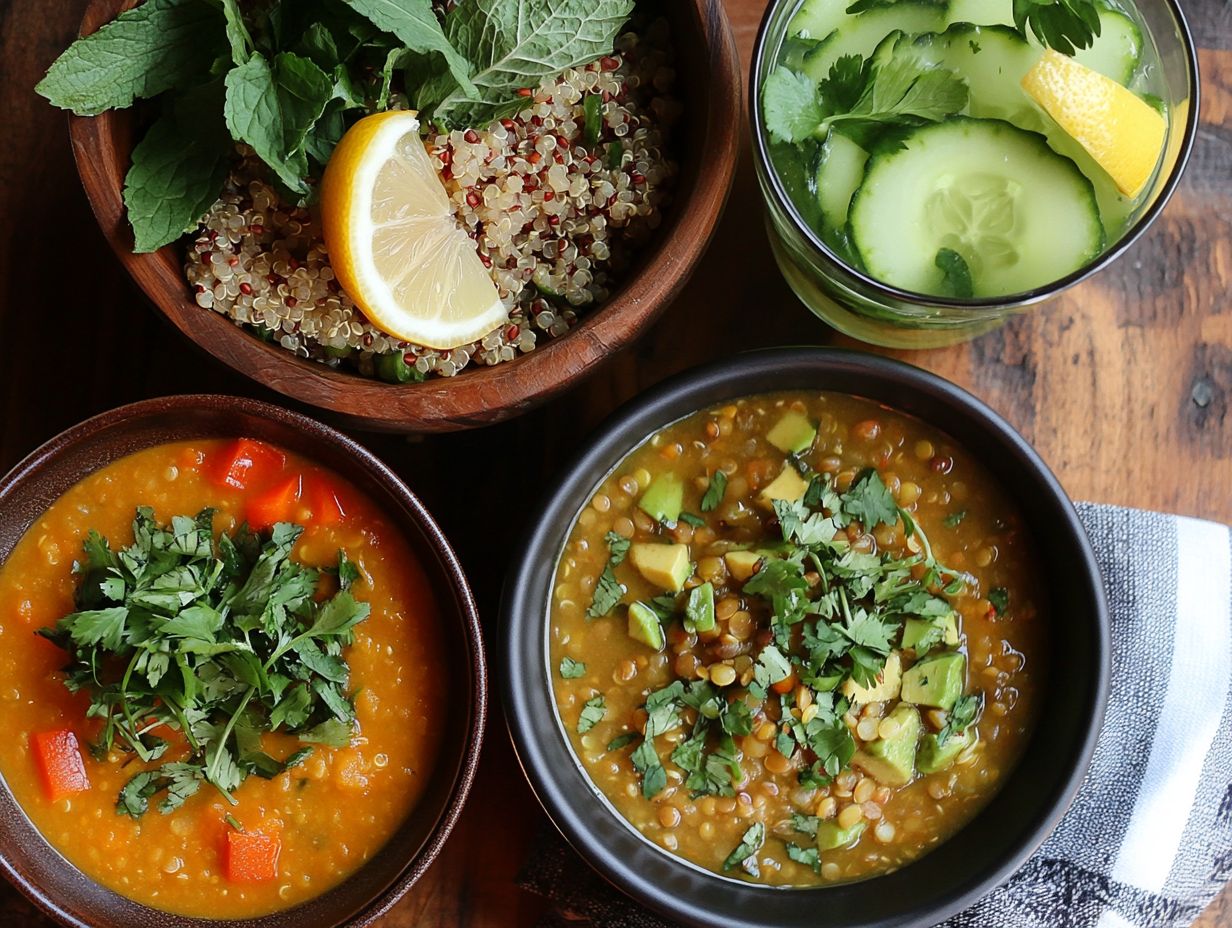
Creating and enjoying IBS-friendly vegan recipes can be a delightful experience, as they promote the exploration of diverse flavors while accommodating dietary restrictions.
These recipes focus on achieving a balance between easy digestibility and nutritional satisfaction, ensuring that meals are not only delicious but also designed to support gut health. Ingredients like tofu and tempeh can be used to create high-protein, low-fat meals that are both flavorful and comforting.
By utilizing whole foods and straightforward cooking techniques, these dishes can be prepared quickly, incorporating seasonal ingredients to simplify meal preparation and encourage a healthy lifestyle.
Breakfast Options
Eating a healthy vegan breakfast is essential for individuals with IBS, as it provides energy to start the day and supports digestive health. Incorporating smoothies and chia seeds can offer an energy-boosting and satisfying start to the day. Common vegan breakfast options that are both filling and easy on the digestive system include smoothies rich in fruits and greens, oatmeal topped with nuts and seeds, and chia seed pudding. These meals help individuals balance their fiber and nutrient intake, which is crucial for gut health, and they are quick to prepare for busy mornings.
To enhance digestive comfort and increase nutritional value, various ingredients can be incorporated. A quick fruit salad featuring banana, berries, and kiwi—foods known to be beneficial for IBS—makes for a great option. For a more wholesome savory breakfast, quinoa bowls with vegetables and nutrient-dense ingredients like spinach and zucchini can be enjoyed. Additionally, granola made with oats and pumpkin seeds can be sprinkled as a crunchy topping on dairy-free yogurt. These simple yet nutritious meal ideas can assist individuals in creating breakfasts that are both delicious and health-promoting.
Simple Vegan Breakfast Recipes for IBS
Stomach-Friendly Smoothies
Nutritious smoothies are among the healthiest and easiest vegan breakfasts for those with IBS. Using ingredients like chia seeds and flaxseeds can enhance the nutritional profile. They are straightforward to prepare, filling, and can include a variety of healthy fruits and vegetables. Common smoothie ingredients include spinach, kale, bananas, blueberries, strawberries, and avocado. Adding nuts or nut butter provides protein and healthy fats, helping to keep you satiated.
Ingredients:
- 1 cup spinach or kale
- 1 cup kale
- 1 banana
- 1/2 cup berries
- 1/2 avocado
- 1/2 cup dairy-free yogurt or nut milk
- 1/4 cup walnuts or almonds
Instructions:
- Place all ingredients in a blender and blend until smooth.
Savory Quinoa Bowl with Vegetables and Flavorful Herbs
Ingredients:
- 1 cup cooked quinoa
- 1/2 cup chopped vegetables (e.g., bell peppers, zucchini, cabbage)
- 1/4 cup beans
- 1/4 avocado
- 1 tbsp olive oil or a pinch of nutritional yeast for extra flavor
- 1 tsp lemon juice
Instructions:
- Combine the quinoa, vegetables, and beans in a bowl.
- Drizzle with olive oil and lemon juice, then top with avocado.
Stomach-Friendly Oatmeal
Ingredients:
- 1/2 cup rolled oats
- 1 cup almond milk or any nut milk
- 1/4 cup blueberries
- 1/4 cup walnuts
- 1 tbsp maple syrup (optional)
Instructions:
- In a saucepan, combine oats and almond milk, and bring to a simmer.
- Cook for 8-10 minutes, stirring occasionally, until the oats are tender.
- Top with blueberries and walnuts.
Stomach-Friendly Chia Seed Pudding
Ingredients:
- 1/4 cup chia seeds
- 1 cup almond milk
- 1 tbsp maple syrup (optional)
Instructions:
- In a bowl, mix chia seeds and almond milk, and let it sit for 5 minutes.
- Stir well and let it sit for another 5 minutes to thicken.
- Add maple syrup if desired.
Chia Seed Shake with Nut Butter
Ingredients:
- 1/4 cup chia seeds
- 1 cup almond milk
- 1 banana
- 1 tbsp nut butter (optional)
Instructions:
- Blend all ingredients in a blender until smooth.
- Add nut butter for extra flavor.
Stomach-Friendly Granola
Ingredients:
- 2 cups rolled oats
- 1/2 cup pumpkin seeds
- 1/2 cup almonds
- 1/2 cup maple syrup
Instructions:
- Preheat the oven to 350°F (175°C).
- In a large bowl, mix the oats, pumpkin seeds, and almonds.
- Drizzle with maple syrup and stir until evenly coated.
- Spread the mixture on a baking sheet lined with parchment paper and bake for 15-20 minutes until golden brown.
- Remove from the oven and let cool before storing in an airtight container.
These simple vegan meals can help individuals with IBS create delicious breakfasts that emphasize digestive wellness and easy digestion.
Lunch and Dinner Ideas
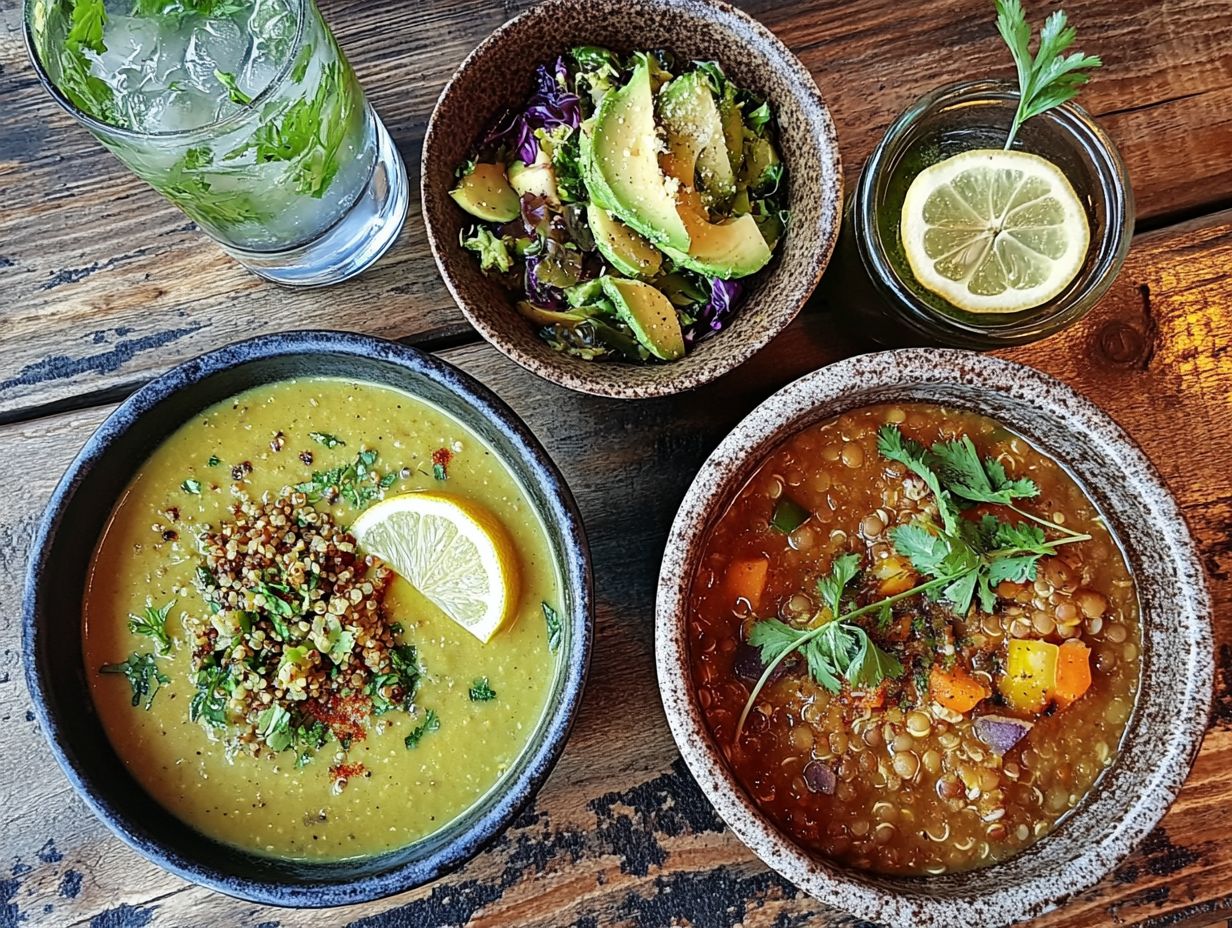
IBS-friendly vegan recipes for lunch and dinner are essential for providing individuals with irritable bowel syndrome (IBS) balanced and enjoyable meals that promote gut health and digestive wellness.
Quinoa salads with vegetables such as zucchini and carrots, vegan soups made with legumes like lentils and chickpeas, and sweet potatoes all make excellent IBS-friendly options. These types of recipes are also easy to prepare in advance, allowing for meal prep for the week or longer.
Common ingredients in these simple meal ideas include brown rice, lentils, and seasonal vegetables like cabbage, which maximize nutrient density and ensure a balanced diet. Incorporating a variety of dietary fiber-rich legumes and whole grains into daily meal prep can enhance digestive health and provide sustained energy.
These meal ideas can be customized to suit individual preferences and tastes, ensuring that those with IBS can still enjoy a wide range of flavors. Colorful stir-fries and Buddha bowls filled with greens like spinach and avocado are just two examples of delicious, IBS-friendly vegan recipes for lunch and dinner.
Snack and Dessert Recipes
Healthy vegan snacks and desserts for those with irritable bowel syndrome (IBS) offer delicious and satisfying options for individuals with digestive sensitivities.
Examples of these IBS-friendly vegan snacks and desserts include:
- Banana oatmeal cookies
- Energy bites made from nuts, seeds, and flaxseeds
- Fruit smoothies
These recipes are enjoyable and promote gut health, providing flavorful and tempting options that maintain nutritional balance with fiber and healthy fats, supporting digestive wellness.
Additional ideas for tasty and healthy vegan snacks and desserts suitable for IBS include:
- Chia seed pudding with almond milk, which is rich in fiber and antioxidants
- Homemade granola bars made from rolled oats, dried fruits, and chia seeds for a nutritious, on-the-go snack
- Smoothies that can incorporate spinach, avocado, ginger, turmeric, and other preferred ingredients
The emphasis on easy preparation and wholesome ingredients like tofu and tempeh makes these recipes excellent choices for anyone looking to maintain a healthy lifestyle.
Tips for Making Vegan Meals Easier to Digest
Vegan food can be made easier to digest by employing specific cooking techniques and selecting ingredients that cater to various sensitivities.
Using cooking methods such as steaming, boiling, or baking instead of frying results in lighter meals that promote easier digestion and support digestive wellness.
Incorporating ingredients known to support gut health, such as fermented foods, probiotics, prebiotics, and healthy fats, enhances the nutritional value of meals while being mindful of IBS symptoms.
Cooking Techniques and Ingredient Substitutions
The digestibility of vegan meals for individuals with IBS can be enhanced by employing specific cooking techniques and modifying or omitting certain ingredients.
Along with utilizing low FODMAP ingredients, methods such as soaking grains overnight and thoroughly simmering legumes can improve digestibility and reduce IBS symptoms. These techniques help to decrease the number of antinutrients that impede absorption and increase the risk of gastrointestinal discomfort.
Choosing low FODMAP ingredients does not mean sacrificing flavor; for example, quinoa serves as a low FODMAP grain that can easily replace wheat with minimal changes to the meal plan. Many low FODMAP recipes incorporate lactose-free dairy products (if tolerated) or use only small amounts of lactose, while garlic-infused oils and nutritional yeast offer the flavor of garlic without the FODMAPs that often cause discomfort.
While these adjustments may not be necessary for everyone, they can significantly enhance the dining experience for those with digestive sensitivities.
